Topics of Lectures offered by the Chair of Mechanical Process Engineering / Water Technology

Here you will find the topics of the lectures offered by the Chair of Mechanical Process Engineering / Water Technology. Please note that we offer some lectures in English and some lectures in German.
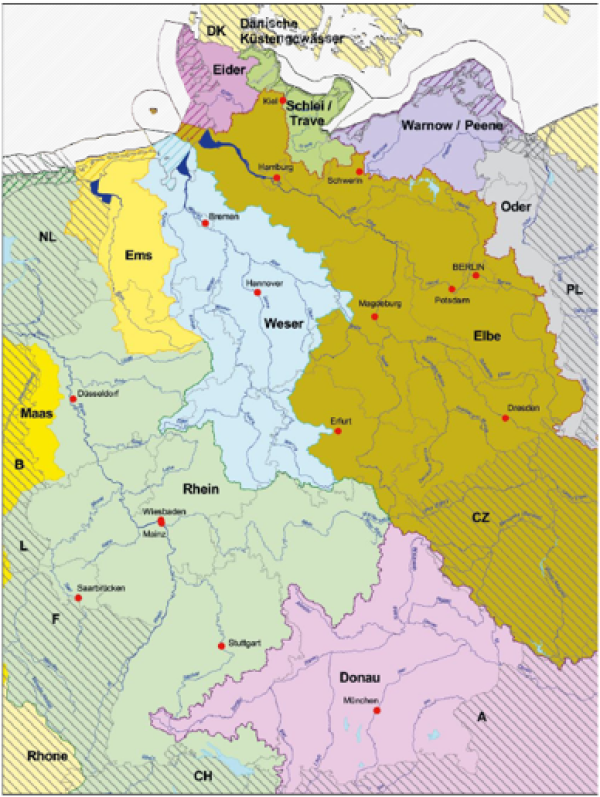
Nationale und internationale Wasserwirtschaft
Lecture in Summer Term
Language: German
Learning Targets:
By participating in the subject "National and International Water Management", students acquire a comprehensive understanding of the basic principles and historical development of water management at both national and international level. They recognise specific aspects and challenges in the context of national water management, especially in relation to legal foundations, water law, water supply and use, and water protection. With regard to international water management, they gain knowledge about transnational waters, international water agreements and the complexity of transboundary water cooperation. Furthermore, students understand the relevance and application of the European Water Framework Directive and other international water policies. They gain insights into the principles of sustainable water management, especially in the context of drinking water supply, wastewater disposal and water use efficiency. Students are also informed about current trends, future challenges and adaptation strategies in water management, especially in light of climate change. Through external lectures they gain further perspectives on current practical examples and research topics in the water sector. The seminar and the term paper promote their ability to independently research, elaborate and present water technology topics. Finally, the field trip enables students to link theoretical knowledge with practical applications by interacting directly with water management facilities and experts.
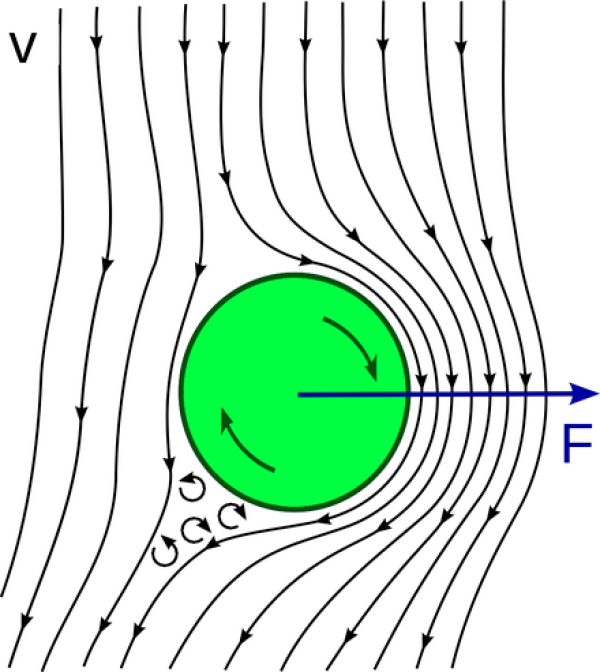
Mechanische Verfahrenstechnik
Lecture in Winter Term
Language: German
Learning Targets:
In the subject “Mechanical Process Engineering”, students are taught in-depth knowledge of the fundamental concepts and applications in this field. By the end of the course, students will be able to understand the basic concepts of mechanical process engineering and establish the historical context and relationship to other engineering disciplines. They will develop a solid understanding of particles and disperse systems, looking in particular at fineness characteristics, particle sizes and shapes, and porous systems. This knowledge is complemented by the ability to statistically describe and interpret particle size distributions. In addition, students acquire knowledge of the various interactions between particles in disperse systems, including the theories and forces that influence these interactions. With a sound understanding of dimensional analysis, students can analyse relevant engineering problems and find solutions. A particular focus is on the forces acting on particles in a fluid. Here, they are familiarised with various phenomena such as hydrodynamic resistance or adhesion. Finally, students gain comprehensive knowledge of separation techniques and their applications, which enables them to efficiently select and implement different procedures for separating particles from fluids.
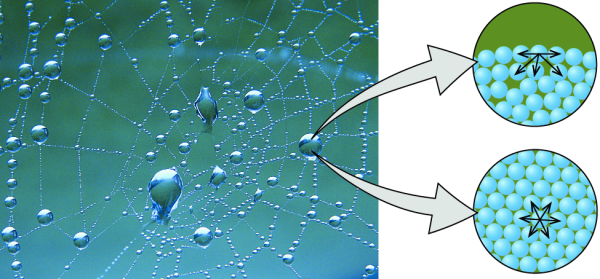
Mechanische Verfahrenstechnik in der Wasseraufbereitung
Lecture in Summer Term
Language: German
Learning Targets:
In the specialised course “Mechanical Process Engineering in Water Technology”, students acquire in-depth expertise that focuses on the application of mechanical processes in the field of water treatment. First, they are introduced to the basic concepts of mechanical process engineering, always focusing on the context of water treatment.
The students deepen their understanding of particles and disperse systems in the aqueous milieu. This includes the examination of different particle properties such as fineness characteristics and particle size distribution. They are enabled to statistically analyse particle distributions, which is particularly important in the assessment of water treatment processes.
Another focus is on the interactions between particles in water. Here, the students learn how particles interact with each other in aqueous systems, which is essential for separation procedures and purification processes in water treatment.
The dimensional analysis they learn during the course enables them to model and optimise water-related mechanical processes. In addition, they gain insights into the different forces acting on particles in water, which in turn is important for separation and filtration processes.
Finally, the students devote themselves to the specific techniques and processes of mechanical solid-liquid separation in water treatment. They are not only introduced to the theory of these processes, but also to their practical application, which enables them to develop efficient and sustainable solutions for real challenges in water treatment.
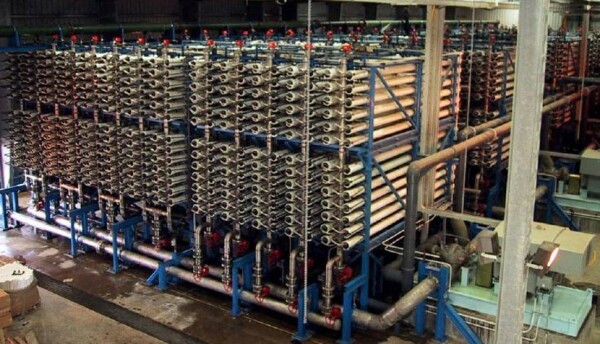
Membrane Technology for Water Treatment
Lecture is in Winter Term
Language: English
Learning Targets:
In the course "Membrane Technology for Water Treatment", students gain a sound understanding of the diversity and application of membrane technologies in water treatment. They start with an insight into the historical background and transformative role of membrane technology in modern water management. Through an introduction to the basic principles of mass transfer, they gain in-depth knowledge of the mechanisms of mass transfer, including diffusion and convection, and how these processes affect membrane function.
Another core competence that students acquire is knowledge of the different techniques and materials used in the manufacture of membranes. They will be able to recognise the effects of specific manufacturing processes on membrane properties and thus select the optimal membrane types for specific applications. The membrane characterisation segment will enable them to apply advanced characterisation techniques and objectively evaluate membrane performance.
The module on module integration provides a comprehensive understanding of the structure and functionality of different membrane modules and their application areas. You will also learn about the different operating modes of membrane systems and understand their specific advantages and limitations. Special emphasis is placed on the challenges of fouling and scaling. Students develop strategies to control, prevent and effectively address these problems to ensure the longevity and efficiency of membrane systems.
In addition, through the sections on pretreatment and cleaning, they gain the tools necessary to assess the quality of the water being treated and develop appropriate pretreatment and cleaning protocols. Finally, through the segments on system design, they will bring together the knowledge they have learned by performing the conceptualisation and design of membrane systems for real applications and under real operating conditions. By the end of the course, students will not only be theoretically versed, but will also have practical skills that they can apply directly in the water treatment industry.
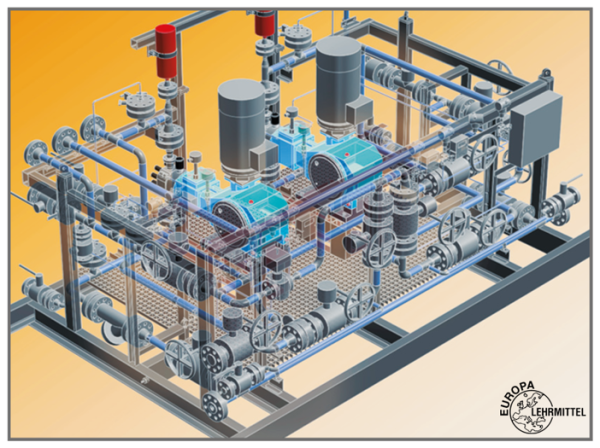
Planung wassertechnischer Anlagen: Systemkomponenten, Instrumentierung und Steuerungstechnik
Lecture in Winter Term
Language: German
Learning Targets:
In the module "Planning of water engineering systems: system components, instrumentation and control technology", students gain an in-depth understanding of the planning and implementation of water engineering systems. They are introduced to the essential duties of a water supplier and recognise the different service phases from planning, tendering to construction supervision. Furthermore, they internalise the basic principles of water demand planning and acquire the ability to correctly dimension water supply systems. Their knowledge extends to hydraulics and fluid mechanics, especially in relation to piping, and they develop knowledge of different types of valves, enabling them to make the right choice based on areas of application. Fluid handling mechanisms and techniques, as well as the selection of appropriate pumping systems, are also part of their skills. They have a solid understanding of measurement techniques and control engineering in water systems. The technical drawing of P&I diagrams for water engineering systems, enables them to produce detailed drawings that conform to standards. Finally, they are familiar with the different materials used in water engineering installations, understand corrosion mechanisms and can apply protection methods. Their training also prepares them to comprehensively design industrial water treatment plants, applying the necessary criteria, methods and best practices.
Quality Management in Water Supply
Lecture in Winter Term
Language: Englisch
Learning Targets:
Students are able to understand national and international regulations in the water supply as the basis for the quality management. They know concepts for monitoring, the assessment of the catchment area, the treatment and distribution system. Focussing on the dependency of the locality and the treatment technology and the demands on the applied materials and the working stuff will explain the complexity. Students are able to perform a risk-based assessment and the performance of emergency measures including a quality management with approaches for alternative water supply and disinfection measures.
Wassergewinnung
Lecture in Winter Term
Language: German
Learning Targets:
The students have acquired extensive knowledge and skills in the field of water extraction. They are familiar with the essential aspects and terminology of hydrogeology and can distinguish and apply the various methods of water extraction, such as well drilling, bank filtration and groundwater recharge, both in theory and in practice. Through the knowledge they have acquired, they are able to assess a raw water used for drinking water supply with regard to its quality and suitability. Furthermore, they have acquired a solid understanding of European and German water law. This enables them to navigate water law procedures and requirements competently. Furthermore, they are familiar with the central principles and methods of resource protection, which enables them to develop and implement sustainable and environmentally friendly strategies for water extraction and use.
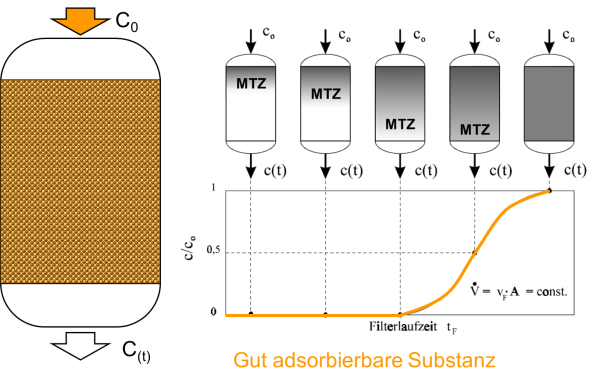
Nachhaltige Wassertechnik
Lecture in Summer Term
Language: German
Learning Targets:
The subject "Sustainable Water Technology" covers a wide range of topics related to the complex world of water. Students receive comprehensive training in water chemistry, hydrology, water resource management and water treatment. Initially, the module is dedicated to the basics by highlighting the physical and chemical properties of water. Students gain in-depth knowledge of the physical and chemical properties of water and are able to analyse and evaluate them in real-life scenarios. This is followed by a focus on water quality, a critical area that examines the natural and man-made constituents in water. This section introduces not only different water constituents, but also the effects of water pollution and the technologies used to monitor water quality.
With a step into hydrology, students are introduced to the water cycle, a crucial component in understanding how water circulates around the planet. This module also looks at water resource management and the differences between groundwater and surface water.
Urbanisation and its impact on water demand is discussed in the next section. Given the rapid urbanisation and population growth in many parts of the world, this is a key issue. Climate change, one of the most pressing challenges of our time, is also addressed, with a focus on its impact on water resources. Students are introduced to strategies and measures for adapting to these new climatic realities. From this, students develop a deep awareness of water-related challenges in urban systems and the impact of climate change on water resources.
Technological advances in water treatment, from traditional to modern processes, are also emphasised. The reuse of treated water is also addressed, an area that is becoming increasingly important in times of scarce resources. Another technological aspect, seawater desalination, is also discussed in detail. Given that much of the earth's surface is covered by salt water, desalination offers a promising way to meet water needs. The module concludes with two particularly innovative areas: sustainable wastewater treatment, which incorporates the principles of the circular economy, and case studies that demonstrate successful applications in practice.
Students will then be familiar with modern and traditional water treatment processes and will be able to apply and evaluate innovative approaches to wastewater treatment, including circular economy principles and biotechnological methods. They are also able to communicate complex scientific and technical information effectively. Overall, the graduates of the subject "Sustainable Water Technology" are well prepared by their wide-ranging competences to develop innovative solutions for the sustainable use and management of water resources in water management, research and consulting.
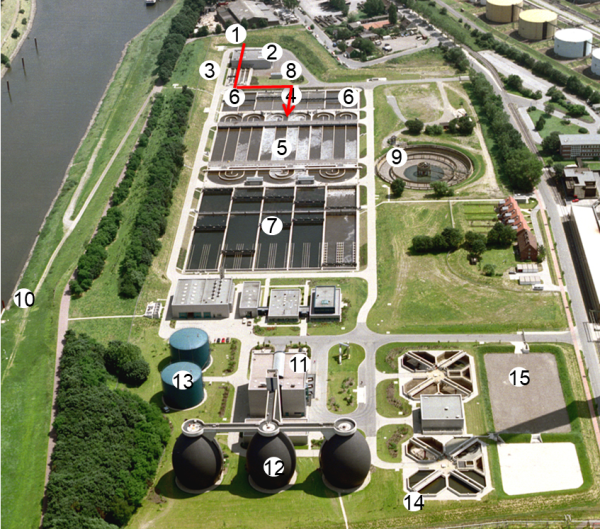
Waste Water Treatment
Lecture is in Winter Term
Language: English
Learning Targets:
Students gain a sound introduction to the terminology and history of wastewater engineering, enabling them to understand not only the historical development but also the current and future challenges of this field. Through the study of urban drainage, they will gain knowledge of the principles and methods behind it. Furthermore, they become familiar with the characteristics and standards of wastewater, learning about analytical methods, typical concentrations and applicable specifications. Students develop skills in the application and dimensioning of mechanical wastewater treatment techniques and deepen their knowledge of basic biological and chemical treatment processes. This includes the activated sludge process, biological N and P elimination and chemical precipitation processes. They will also learn about the importance of sludge treatment and how different sludge treatment strategies are applied, including the different techniques such as thickening, stabilisation, dewatering and P recovery. Finally, they are introduced to the motivation and methods of advanced wastewater treatment, understanding the role of activated carbon, ozone and membrane technology in this process.
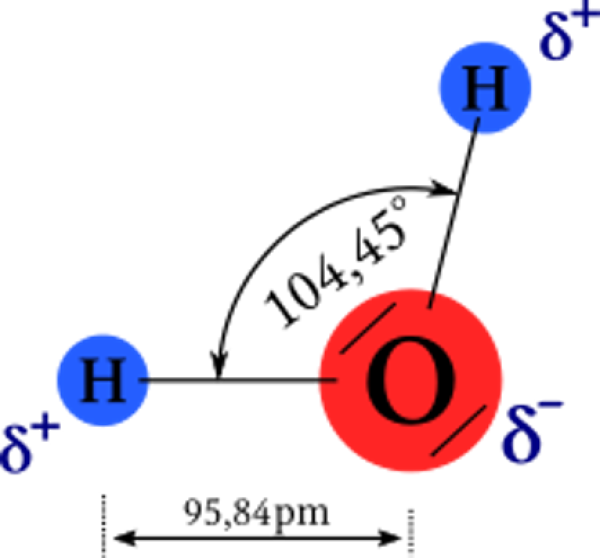
Water - Natural Science Fundamentals
Lecture is in Winter Term
Language: English
Learning Targets:
With the module "Water - Natural Science Fundamentals" students acquire comprehensive knowledge about the chemical properties and the central role of water in various reactions. Participants develop:
- A conscious understanding of the importance of water from a natural science perspective.
- A basic knowledge of chemistry, including molecular structures and types of bonding.
- A deep understanding of the uniqueness of the water molecule, especially its polarity and hydrogen bonding.
- Expertise in water as a solvent and its interactions with ions and molecules.
- Expertise in the theory and practice of acid-base reactions and the measurement of pH.
- Expertise in solubility principles and the concept of solubility product.
- Expertise in redox reactions, oxidation, and reduction in aqueous solutions.
- A sound understanding of the equilibrium between lime and carbonic acid and its applications in water treatment.
This knowledge and skills will provide students with a solid foundation for further studies in water sciences.
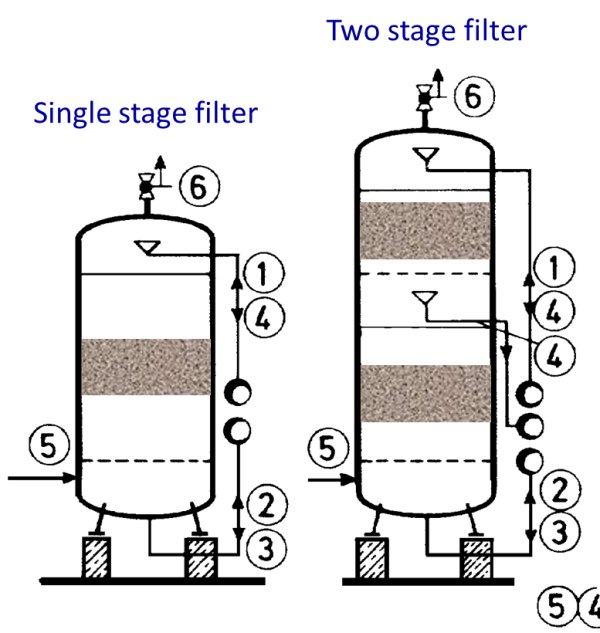
Water Treatment 1
Language: English
Learning Targets:
In the module "Water Treatment 1", which covers conventional technologies for drinking water treatment, students acquire an in-depth knowledge of the different components of water and their impact on urban systems. They develop a solid understanding of common drinking water treatment processes and techniques, particularly in the areas of sedimentation, depth filtration, adsorption, and coagulation and flocculation. This knowledge enables them to identify process units in water treatment, describe their specific functions and formulate basic design recommendations for drinking water treatment plants. The acquired competences lay the foundation for understanding complex treatment systems and enable students to make informed decisions about the selection and application of suitable technologies in practice.
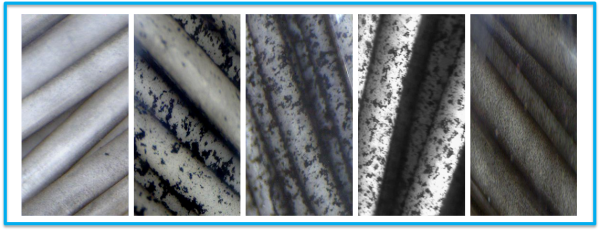
Water Treatment 2
Language: English
Learning Targets:
The module "Water Treatment II" deepens the students' understanding of conventional technologies in drinking water treatment. Upon successful completion of the course, students will have a sound knowledge of the role of oxidation in water treatment, particularly in relation to its impact on water quality. They will become familiar with the different disinfection methods and understand the central importance of disinfection in ensuring drinking water quality. In addition, they acquire a deep understanding of the mechanisms and applications of gas exchange in water treatment and can use it effectively for quality control.
Students also develop expertise in sludge treatment, learning about and understanding the different methods of sludge treatment and disposal in water treatment. By learning water analysis methods, they are able to effectively assess the quality of water and correctly interpret analysis results. Ion exchange is another important aspect of the course, giving students a sound understanding of the process and its effects on water constituents. Overall, this course enables students to recognise process units in water treatment, describe their specific functions and create basic designs for drinking water treatment plants.
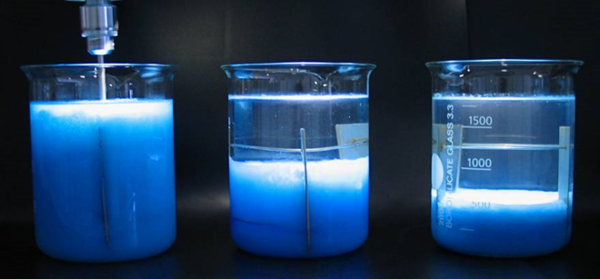
Practical Course Water Technology
Practical Course in Summer Term
Language: English
Learning Targets:
The laboratory practical course "Practical Course Water Technology" offers students a hands-on experience in the core areas of water technology treatment. The main focus is to deepen and consolidate the theoretically acquired knowledge through practical application in a real laboratory environment.
Students are guided through the various key processes of water treatment in structured experiments. These include:
Flocculation: here students learn how particles in water are aggregated by adding flocculants to make them easier to remove.
Membrane filtration: The application of membrane technologies for separation and purification is practically demonstrated here.
Scaling measurement using quartz microbalance: An in-depth understanding of the formation of deposits on surfaces and their measurement is taught in this experiment. The results of water chemistry calculations for the description of aquatic systems are compared with the experimental results
Adsorption equilibrium and kinetics: Here the students deal with the mechanisms of adsorption and the laws that apply to it.
Density measurement of activated carbons: The experiment provides students with knowledge on how to determine the density and porosity of activated carbon.
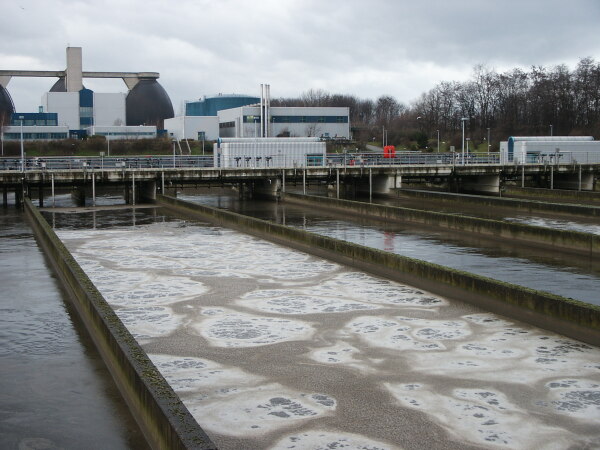
Industrial practical
Learning Targets:
Upon successful completion of the industrial internship, students should have acquired the following learning outcomes and competences:
Practical application: Students will be able to apply their theoretical knowledge of water and wastewater engineering acquired during their studies in a real industrial context.
Industry expertise: Students have developed an in-depth understanding of the operations, processes and challenges in the water and wastewater industry.
Technical expertise: Students have broadened and deepened their technical skills through active participation in industry-specific projects.
Management skills: They are able to evaluate and manage water technology projects taking into account economic, environmental and social aspects.
Teamwork and communication: Students have improved their ability to work in interdisciplinary teams and can communicate effectively with professionals from different areas of the water and wastewater industry.
Problem identification and problem solving: They are able to identify real problems and challenges in the water and wastewater industry and develop solutions based on their academic knowledge and the experience gained in the internship.
Career orientation: Students have gained insight into possible career paths and occupational fields within the industry and are able to make informed decisions about their future career direction.
Independent work: They can independently take on, plan and implement tasks and projects in an industrial environment.
Critical thinking and reflection: Students are able to critically evaluate their work and the work of others and have learned to reflect from their internship experiences and use these reflections to inform their future academic and professional development.
Networking skills: Students have enhanced their networking skills by building and maintaining relationships with industry professionals and colleagues during their internship.
By achieving these learning outcomes and competencies, students are better prepared to pursue successful careers in the water and wastewater industry, in both technical and management positions.
Water Science Project
Learning Targets:
Through active participation in the "Water Science Project", students acquire in-depth knowledge in their chosen topic area of water science. They learn to develop complex research questions and to apply appropriate scientific methods to investigate these questions. Working independently strengthens their skills in designing, conducting and analysing research projects. As part of the module, they are also trained in creating and designing presentations, which enhances their communication skills in a scientific context. In addition to practical experience, they also gain the confidence and competence to present their research findings clearly and coherently in a scientific format and to discuss them in a seminar setting. They also get the opportunity to receive feedback on their work and build on this to further refine their research skills. This in-depth knowledge and the acquired skills optimally prepare students for their Master's thesis and enable them to make a valuable contribution in a university or research-oriented context. The module thus promotes not only the students' professional expertise but also their soft skills, which will be invaluable in their future careers.
Teaching form
The "Water Science Project" is designed as a research-oriented project in which students are deeply immersed in the research process. At the beginning of the semester, there is an introductory lecture that familiarises students with the basic methodologies and approaches of the chosen topic area. This lecture ensures that all participants have the necessary basic methodological knowledge to successfully start their project. After this introduction, students choose a specific topic from the field of water sciences in consultation with the supervising lecturer. Equipped with a solid methodological foundation, they are further familiarised with their chosen topic and start working on their project independently. During the entire duration of the project, a lecturer from the department is at their side as a mentor. In regular meetings and feedback rounds, the progress of the project is evaluated, emerging challenges are discussed, and solutions are developed together. The students are in an interactive and supportive learning environment that enables them to directly apply theoretical knowledge in practical work. At the end of the semester, they present their scientific results in a colloquium. Here they can demonstrate and further hone not only their acquired specialist knowledge, but also their communication and presentation skills. This teaching concept strengthens the students' initiative and independence and ideally equips them for future research-oriented and industrial activities.

